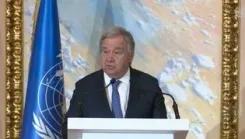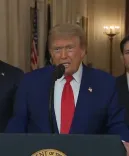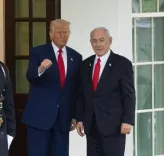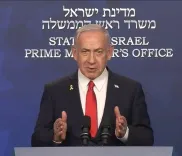Why is Iran Refusing to Eliminate Its Nuclear Activities?
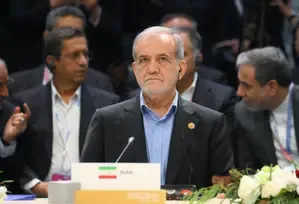
Synopsis
Key Takeaways
- Iran will not cease its nuclear activities entirely.
- Collaborative efforts are sought based on mutual respect.
- Israel is accused of undermining peace efforts through military actions.
- The conflict has resulted in significant casualties on both sides.
- France aims to mediate and reduce regional tensions.
Tehran, June 22 (NationPress) Iranian President Masoud Pezeshkian declared that Iran will not consent to a complete cessation of its nuclear activities, as stated on his official website.
"We are willing to engage and foster trust regarding our peaceful nuclear initiatives," he conveyed to French President Emmanuel Macron during a phone conversation on Saturday. "However, we categorically reject any proposal to terminate our nuclear activities entirely," he added.
Pezeshkian underscored that his administration is striving for collaboration with all countries rooted in mutual respect. Nevertheless, he accused Israel of obstructing these efforts, referencing the assassination of Hamas leader Ismail Haniyeh in Tehran in July 2024, shortly after he assumed office, as reported by Xinhua.
He charged Israel with consistently breaching international law through military operations, including recent assaults on Iranian territories. He reaffirmed that Iran does not seek nuclear weapons and is prepared to offer assurances regarding the peaceful nature of its nuclear program.
Macron, on his end, stated that France did not partake in Israel's military action against Iran and does not endorse it, emphasizing that France denounces any aggression towards non-military and non-nuclear facilities.
The French leader further remarked that France is dedicated to halting the military conflict and reducing tensions, insisting that respect for a nation's sovereignty is paramount and that employing pressure and threats is not a viable solution.
This dialogue occurred amidst ongoing hostilities. On June 13, Israel executed significant airstrikes on Iranian nuclear and military installations, resulting in the deaths of multiple senior commanders and nuclear scientists. In retaliation, Iran launched missile and drone attacks.
As of Saturday, over 400 Iranians have lost their lives and more than 3,000 have sustained injuries, according to reports from Iran's Health Ministry. In Israel, local authorities reported that 24 civilians were casualties of Iranian missile strikes.

